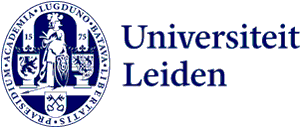
Pioneer Christiaan Weijts: clandestine novelist in literary circles
In a new series we talk to past and present students who were the first in their family to go to university. In this first instalment: novelist and columnist Christiaan Weijts (1976). ‘I always felt as though someone would tap me on my shoulder once they’d discovered my clandestine presence.’
Mohammed El Baroudi (1995), a trainee at Leiden University, was himself a first-generation student. He is tracking down the stories of pioneers at Leiden University. This is his first article in the series.
A muggy day in the centre of Leiden, perhaps the ideal weather to be revisiting childhood memories in the shade of an office on Rapenburg. Weijts’ response to the interview invitation was positive, but he did add a disclaimer: he didn’t know whether he was a ‘typical example’. ‘The first thing that came to mind was someone from a family from a new country, as Zihni Özdil says of himself: the son of a goatherd.’ Weijts studied Dutch languate and literature and General Literary Studies.
Secret societies
The further we delve into the past, the more animated Weijts becomes as he relates stories and anecdotes. It’s hard for us to stick to a chronological order, but that’s also down to the humorous tone and nature of his stories. ‘Secret artsy clubs or societies appealed most to my youthful naivete at the time. I joined Litteris, a small society that was all about poetry.’ This gave him access to networks – and the associated exclusive dinners and meetings – that allowed him to give vent to his passion for the romance of literature. ‘But I always felt as though someone would tap me on my shoulder once they’d discovered my clandestine presence and would send me packing.’ Though he does admit there wasn’t much in the way of exclusion: ‘In similar circles in France, you just don’t get any further at a certain point. Doors hermetically close for you if you don’t come from the classic bourgeoisie.’
Minerva neckties
Weijts was definitely a pioneer, despite his initial claims to the contrary. The sun’s rays begin to reach us inside and we pour more water in our glasses. The mutual recognition between first-generation students bounces back and forth across the table during the conversation. ‘I can’t even remember the open days, but I found it over the top to drum up the support of my parents at my propaedeuse ceremony as a first year. Whereas I do remember students from more academic backgrounds than mine getting their parents to come and the Minerva ties being dusted down and ironed specially for the occasion.’

Fend for yourself
For Weijts pioneering meant fending for himself while students from other backgrounds were more likely to follow the path well-trodden. ‘They often already knew how things worked, from which clubs they had to join to how they could get the job they wanted and what kind of letter you had to write for that. I had to find it all out for myself, roam around, hang out at the library for hours on end to find out how to use the index cards to discover the literary gems in the archive. I wouldn’t have wanted a well-trodden path anyway. But I can imagine it’s difficult for students who don’t have the luxury of being able to roam around and discover. It would make a huge difference if they were told about all the options and possible paths.’
Uniformity
Weijts brings his acerbic pen and endless sarcasm to his columns. Writing for the NRC newspaper, he turned his attention to Inclusieve eenheidsworst (inclusive uniformity) in a piece about gymnasium schools and the Dutch Education Council’s plan to introduce broad secondary first year classes [as opposed to the current system of streaming children from the first year of secondary school], the title of which suggests he is taking a swipe at such schools. Nothing could be further from the truth, however: ‘If you feel the need to excel, that’s fine, but not at the expense of the taxpayer. Go to a private school instead, a Dutch Eton. If you can afford it,’ he wrote.
‘If you feel the need to excel, that’s fine, but not at the expense of the taxpayer.’
Here Weijts can see the typical Dutch habit of taking people down a peg if they dare to stand out. He also recognises the danger of inherited exclusivity in education, but does think the opportunity to excel is essential. ‘Children have to be able to shine and excel if they are good at learning without being laughed at by their peers for wanting to learn. Perhaps a cynical thought, but the possibility to be among like-minded people is important for your development.’
The future: 2056
When asked how Kris, the main character in Furore (published in 2020), his novel set in 2056, will look back at equal opportunities in today’s Dutch education system, Weijts sighs briefly but is optimistic too. ‘The best would be if he wonders what we were so het up about because by then there is maximum freedom of movement in education. Assessment is on merit and there is no longer be a tradition of following in the family’s educational footsteps.’
Share your story
Are you a pioneer or do you know others who would like to share their experiences in an interview? Mail the editor.
Text: Mohammed El Baroudi
Photos: Melissa Schriek
